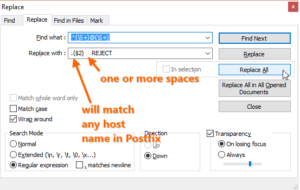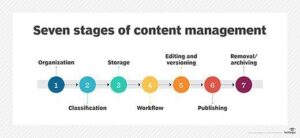Are domain names case sensitive? This is a question that many people have when it comes to the world of website addresses. You might be wondering if it really matters whether you use uppercase or lowercase letters in your domain name. Well, fear not! I’m here to shed some light on this topic and give you the lowdown on whether case sensitivity matters in the world of domain names.
When it comes to domain names, the short answer is no, they are not case sensitive. In other words, whether you use uppercase or lowercase letters in your domain name doesn’t really matter. You can type it out in all caps, all lowercase, or any combination you prefer, and it will still lead you to the same website. So, if you’re worried about your visitors typing in your domain name with the wrong case, you can rest easy knowing that it won’t affect their ability to access your website.
Now that we’ve cleared that up, let’s dive a little deeper into the world of domain names and explore why this case insensitivity exists. It all comes down to the underlying technology that powers the internet: the Domain Name System (DNS). The DNS is responsible for translating human-readable domain names into the IP addresses that computers use to communicate with each other. And guess what? The DNS doesn’t care about case when it’s doing its job. It treats all domain names as case insensitive, which means that no matter how you type it out, it will still find the correct IP address and take you to the right website.
So, the next time you’re registering a domain name or typing one into your browser, remember that case sensitivity is not something you need to worry about. Feel free to use uppercase, lowercase, or a mix of both to create a domain name that represents your brand or website. And rest assured that no matter how your visitors type it in, they’ll still find their way to your corner of the internet.
Are Domain Names Case Sensitive?
Domain names play a crucial role in establishing an online presence. They are the unique addresses that users type into their web browsers to access websites. When it comes to domain names, one question that often arises is whether they are case sensitive. In other words, do uppercase and lowercase letters matter when it comes to accessing a website? Let’s delve into this topic and explore the case sensitivity of domain names.
Understanding Domain Names
Domain names are composed of multiple parts, separated by periods. The last part of the domain name, known as the top-level domain (TLD), usually indicates the type of website or organization it represents. Common TLDs include .com, .org, and .net. The part before the TLD, known as the second-level domain (SLD), is the unique identifier for a specific website.
Case Sensitivity in Domain Names
The case sensitivity of domain names depends on various factors, including the operating system, web server, and DNS (Domain Name System) configuration. In general, domain names are not case sensitive. This means that whether you type the domain name in uppercase or lowercase, the web browser will treat it as the same address.
However, it’s essential to note that the path or file name within a website’s URL can be case sensitive. For example, if a website has a file named “About.html” and you type “about.html” in the URL, the web server may not find the file and display an error.
The Importance of Consistency
While domain names may not be case sensitive, it is still crucial to maintain consistency in their usage. Consistency ensures that users can easily remember and access your website without any confusion. It’s a best practice to choose a standard case for your domain name and stick to it.
Additionally, consistency is vital when sharing URLs. If you provide a URL with a specific case to someone, they may encounter difficulties accessing the website if they type it differently. By being consistent, you ensure a seamless user experience and avoid any potential issues.
Factors Affecting Case Sensitivity
Although domain names are generally not case sensitive, certain elements within the web ecosystem can impact their case sensitivity. Let’s explore some factors that may influence the case sensitivity of domain names.
Operating Systems
Different operating systems may handle case sensitivity differently. For example, Windows-based systems typically ignore case sensitivity in domain names, while Unix-based systems distinguish between uppercase and lowercase letters. However, web browsers are designed to handle domain names uniformly, regardless of the operating system.
Web Servers
Web servers also play a role in determining the case sensitivity of domain names. Some web servers may treat uppercase and lowercase letters differently, while others may not. The configuration settings of the web server can influence this behavior.
DNS Configuration
The DNS configuration can impact the case sensitivity of domain names. DNS is responsible for translating domain names into IP addresses, allowing users to access websites. The DNS configuration settings can determine whether domain names are case sensitive or not.
It’s important to consult with your web hosting provider or IT team to understand the specific case sensitivity rules that apply to your domain names.
Best Practices for Domain Name Usage
While domain names may not be case sensitive, it’s essential to follow best practices to ensure a seamless user experience. Here are some tips for effectively using domain names:
1. Choose a standard case
Select a standard case for your domain name and consistently use it. Whether you opt for all lowercase, uppercase, or a combination, make sure to maintain the same case across all instances of your domain name.
2. Avoid confusion
To prevent confusion, avoid using similar-looking characters or combinations that can be easily mistaken for different cases. For example, the letters “O” and “o” can be confused, as well as “l” and “I.”
3. Be mindful of URL paths
While the domain name itself may not be case sensitive, the paths or file names within the URL can be. Ensure that you use the correct case when referencing specific files or directories within your website.
4. Communicate consistently
When sharing URLs, communicate the case of the domain name clearly to ensure that users can access the website without any issues. Consistency in communication is key to a smooth user experience.
In Summary
In conclusion, domain names are generally not case sensitive. Whether you type a domain name in uppercase or lowercase, web browsers will treat it as the same address. However, it is important to maintain consistency in the case of your domain name for a seamless user experience. While the domain name itself may not be case sensitive, the paths or file names within the URL can be. By following best practices and being mindful of case sensitivity, you can ensure that your website is easily accessible to users.
Key Takeaways: Are Domain Names Case Sensitive?
- No, domain names are not case sensitive.
- Whether you type a domain name in uppercase or lowercase, it will still take you to the same website.
- However, the case sensitivity of domain names only applies to the domain itself and not the rest of the URL.
- For example, “example.com” and “Example.com” will lead to the same site, but “example.com/page” and “Example.com/page” may lead to different pages.
- It’s always a good practice to use consistent capitalization when sharing or promoting a domain name to avoid confusion.
Frequently Asked Questions
Here are some commonly asked questions about domain names and whether they are case sensitive.
Q: Can domain names be case sensitive?
Domain names are not case sensitive. This means that whether you type the domain name in uppercase or lowercase letters, it will still direct you to the same website. For example, typing “example.com” and “EXAMPLE.com” will both lead you to the same website.
However, it is important to note that the path or URL after the domain name can be case sensitive. This means that if you have a specific file or directory in the URL that is case sensitive, you must enter it exactly as it appears in order to access the correct page.
Q: Why aren’t domain names case sensitive?
The reason domain names are not case sensitive is due to the way the Domain Name System (DNS) works. DNS is responsible for translating domain names into IP addresses, which are numerical identifiers used to locate websites on the internet. When you type a domain name into your browser, the DNS servers map it to the corresponding IP address.
Since DNS is case insensitive, it treats uppercase and lowercase letters as the same. This simplifies the process of resolving domain names and ensures that users can easily access websites regardless of how they type the domain name.
Q: Can I use uppercase letters in my domain name?
Yes, you can use uppercase letters in your domain name. However, it is important to note that domain names are not case sensitive, so using uppercase letters will not affect how your website is accessed. It is more common to use lowercase letters in domain names as it is easier to type and remember.
Additionally, when sharing your domain name with others, it is generally recommended to use lowercase letters to avoid any confusion or errors when typing the domain name.
Q: Are email addresses case sensitive?
Email addresses are not case sensitive. This means that whether you type the email address in uppercase or lowercase letters, it will still reach the same recipient. For example, typing “example@email.com” and “EXAMPLE@EMAIL.COM” will both send the email to the same address.
However, it is important to note that the local part of the email address (before the @ symbol) is case sensitive. This means that if your email provider allows for case sensitivity, “john@example.com” and “John@example.com” could potentially be treated as two different email addresses.
Q: How can I ensure my domain name is easily accessible?
To ensure your domain name is easily accessible, it is recommended to use lowercase letters. This minimizes the chances of any errors or confusion when typing the domain name. Additionally, it is important to choose a domain name that is easy to remember and relevant to your website or business.
Furthermore, it is beneficial to regularly renew your domain name registration to prevent it from expiring and becoming unavailable. Keeping your domain name active and consistently promoting your website will help ensure its accessibility to users.
Are Domain Names Case Sensitive? By NamingGenerator.com| The Free Domain Name Generator Tool
Final Summary: Are Domain Names Case Sensitive?
After exploring the topic of whether domain names are case sensitive, we can conclude that in most cases, domain names are not case sensitive. This means that whether you type a domain name in uppercase or lowercase letters, it will direct you to the same website. However, it’s important to note that this may vary depending on the operating system, web server, or specific website configuration. So, it’s always a good practice to double-check and use the correct case when entering a domain name.
In the world of search engine optimization (SEO) and website development, understanding the case sensitivity of domain names is crucial. While it may not significantly impact the ranking of your website on search engines, it can affect the user experience and accessibility. Therefore, it’s advisable to follow the standard convention of using lowercase letters when registering and promoting your domain name.
Remember, when it comes to domain names, consistency is key. Whether you’re sharing your website with others or embedding links in your content, it’s best to use the same case as your registered domain name. This ensures that users can easily access your website without any confusion or errors. So, whether you’re typing “example.com” or “EXAMPLE.com,” rest assured that you’ll reach the same destination.







